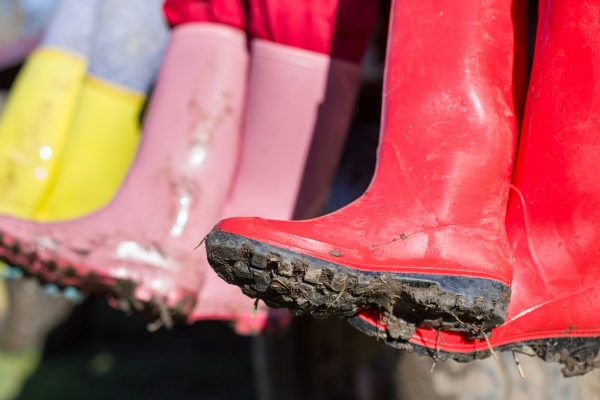Tread carefully when going onto farms
Visitors to Australia planning to work in regional and rural Australia doing seasonal work can help farmers keep their crops safe from nasty pests and diseases and need to learn how before getting a farm job.
“Farmers appreciate workers who understand the importance of farm biosecurity – practices or measures that protect their crops against biological risks like pests and diseases,” said Rob Hayes, State Manager – Harvest Trail.
While Australia is a great place to visit and work, unfortunately there are lots of nasty pests and diseases that can catch a free ride on boots, clothes or vehicles of people that move on and off farms – including workers.
These diseases and pests have some pretty exotic names and can wreak havoc. Cucumber green mottle mosaic virus shut down the melon industry in the Northern Territory, Panama tropical race 4 forced the banana industry to spend $6M purchasing an infected farm and removing all bananas, and citrus canker forced the removal of over half a million citrus trees in Queensland.
“This kind of damage to horticultural industries reduces the available work for people looking to do their 88 days to secure a second-year visa and others wanting a seasonal job,” said Mr Hayes.
“Weed seeds, plant pests and diseases are not always noticeable and people can move them between properties without knowing.
“People travelling around Australia and working on many different farms need to be aware of this and take a few simple precautions to prevent spreading pests and diseases.”
MADEC recommends backpackers and other seasonal workers follow a few simple measures to reduce the chances of introducing a weed, plant pest or disease onto a property:
- Keep vehicles clean: Make sure your vehicle is free of mud, soil, seeds and plant material. While it is recommended that you wash the wheels and undercarriage with a high pressure, high temperature washer (> 75 oC) before entering a property, using cold water to remove dirt will also work.
- Check your clothing, including hair and hats for any seeds or plant material. Pay special attention to your shoes as they can easily carry contaminated soil and seeds.
- Clean and disinfect equipment (such as pruning shears) in between use on different properties. Wipe your equipment over with soapy water and then disinfectant. Remember that unless an item is thoroughly clean, it will not be satisfactorily disinfected.
- Park in parking areas: When arriving at a new property, park in the designated area for visitors or well away from cropping cialis-online-secure.com or plantation areas.
- Report to the farm’s office. Do not enter cropping or plantation areas without permission and be sure to follow the manager’s conditions of entry.
- Report symptomatic plants: If you see a plant pest or disease symptom that you think is unusual, report it to the farm manager or owner immediately.
Backpackers can also watch the Farm biosecurity – general hygiene video for a briefing on hygiene practices workers should be aware of before going to work on a farm.

More information
Rob Hayes, State Manager – National Harvest Labour Information Service
